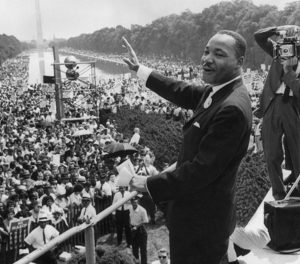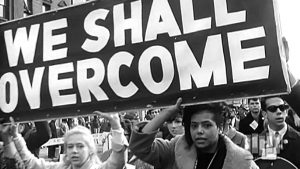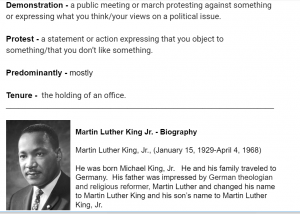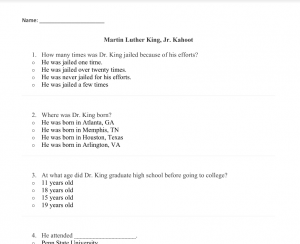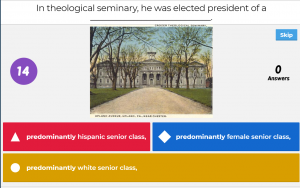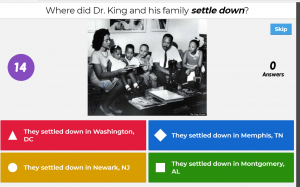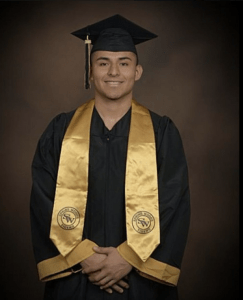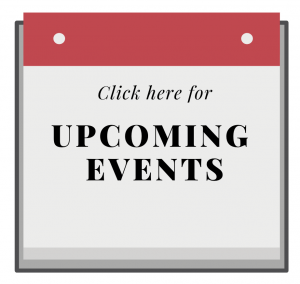Every teacher of ELLs can benefit from the positivity and growth mindset of Diana Delaney.
She is my guest on the podcast this week and I’m inspired by how much she believes in her students.
Diana is an ESOL (English to Speakers of Other Languages) teacher in Atlanta, Georgia. She is constantly sharing great content from her twitter account, so be sure to follow her at @DelaneyELDiana.
You can listen to the show right here.
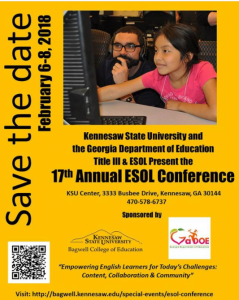 Diana and I talk about the ESOL Conference in Atlanta Georgia in a few weeks. I am indebted to her for telling me about it. I am presenting at the conference with Emily Francis who is also from our PLN and a very inspiring ESL teacher. We all look forward to learning together in Georgia.
Diana and I talk about the ESOL Conference in Atlanta Georgia in a few weeks. I am indebted to her for telling me about it. I am presenting at the conference with Emily Francis who is also from our PLN and a very inspiring ESL teacher. We all look forward to learning together in Georgia.
Diana and I discuss her journey and how she became an ESOL teacher that supports students across her campus. Diana herself is from Venezuela and her career path has taken shape from her love of culture and diversity.
Diana and I discuss the pros and cons of supporting students through a pull-out model vs. a push-in model. In her school, the only option is to pull out and Diana explains how she has this schedule structured so that it is a positive opportunity to reinforce content learning. She has a lot of success pre-teaching concepts ahead of the general education teachers. I shared the success of my newcomer student Uri, who was essentially doing this same thing for himself last year. I mention this video where Uri explains how reviewing and pre-teaching himself vocabulary accelerated his reading, his English language and his content learning.
Diana and I talk about our awesome online book club that was started by Tan Huyhn and Katie Toppel. You can jump in any time on Twitter with the hashtag #Ellchat_bkclub. This round we are working through Nancy Motley’s Talk, Read, Talk, Write. I love having Diana in my PLN because she shares great insight in the book club and in general.
#Ellchat_BkClub Used different visuals from historical websites when my EL Ss were studying about history. Ss had good discussions pic.twitter.com/yMVvbs6sIa
— Diana Delaney (@DelaneyELDiana) January 17, 2018
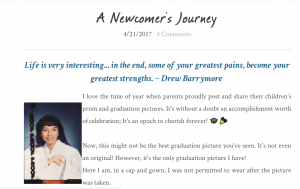 Diana told us that she used Emily Francis’ blog post about her journey as a newcomer with one of her students and it had a big impact. I have also shared Emily’s story with my English learners and it has always had a big impact.
Diana told us that she used Emily Francis’ blog post about her journey as a newcomer with one of her students and it had a big impact. I have also shared Emily’s story with my English learners and it has always had a big impact.
During the podcast, I mentioned Gerson Bermudez. This student inspired so many of my high school students including Uri that I mention above. I would encourage you to follow this link if you have not seen Gerson’s video.
She also gave high praise for John Gordon (author of The Energy Bus) who encouraged her to get on Twitter.
We talked about giving your ESL students the opportunity to do The Hour of Code.
I want to again thank Diana for coming on the podcast. Her attitude about all of her learners is exactly what we need for our future bilingual students. She has a firm belief that they can be successful. Imagine being an English learner at her school. How do you think Diana makes them feel? It makes me so happy to think about it!
Thanks for listening to the show!
Do you want more support? I’d love to work with you and your staff. Reach out at carolsalva1@gmail.com.
Also! Please join me in Houston for a great Tech for ELLs conference in March. John Seidlitz and I are excited to present this popular conference on March 21st.
Anna Matis and I are also thrilled to be presenting the Boosting Achievement training in Dallas on March 27th. The registration forms are below. Hope to see you there!
